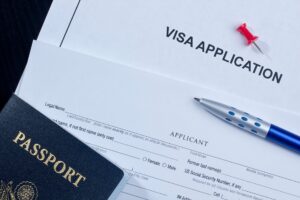If you are facing an undesirable immigration decision, you will need to understand the BIA immigration appeal process. Most immigrants have the right to appeal immigration rulings, especially if they believe them to be unfair or incorrect. Despite this, there are certain things you must be aware of, such as the immigration appeal timeline and the common pitfalls that can result in an appeal rejection. Keep reading to find out what the BIA immigration appeal process is like and how you can file a successful appeal.
When Can You File an Immigration Appeal?
Receiving an unfavorable decision from an immigration judge can feel devastating. However, the good news is that you can begin the BIA immigration appeal process as a way of having this decision re-examined.
Immigration appeals are an option available to those who were denied asylum, received final orders of removal, or wish to adjust their status. By appealing the unfavorable decision, you will have the ability to present new evidence to the immigration judge or prove why you believe the decision was made in error.
There is also a time limit to this appeal, which you must follow for your case to be re-examined. First, you must file a board of immigration appeals brief, also known as a notice of appeal. And this must be filed and received by the BIA within 30 days of the date of the immigration decision.
If you are appealing deportation, exclusion, or an order of removal, you will be protected during this 30 day period.
How the BIA Appeal Process Works
The general BIA appeal process is pretty straightforward, with two main requirements for those who want to file a notice of appeal. Firstly, you must state your intent to appeal the immigration judge’s decision during the court proceedings. Secondly, you must file your notice of appeal in a timely manner so that the BIA receives it within 30 days of the immigration judge’s decision.
You must correctly fill out the notice of appeal, also known as EOIR-26. Follow the EOIR-26 form instructions and attach any applicable legal briefs and supporting documents to support why you are appealing. The documents you will need to provide will differ depending on your reason for appealing, whether you believe the decision is unfair or made in error.
The BIA will review your notice of appeal to determine whether or not the immigration judge’s ruling was fair. If accepted, the BIA can reverse the immigration decision, giving you a more favorable ruling. But if you receive a BIA appeal rejection, this will finalize the original decision.
Depending on the circumstances, you may still be able to file a petition for review with the U.S. Circuit Court of Appeals. However, you should never attempt to do this on your own without the help of an immigration attorney.
How to Strengthen Your Appeal
You need to have a legal strategy for a BIA appeal so that you can file a strong notice of appeal. The very first thing you need to do is to consult with an immigration attorney about the situation and the complexities of your immigration case.
An immigration attorney can help you decide whether or not you should appeal based on a legal error or a factual dispute. It is important to determine the reason for your appeal so that you can present a clear argument that is backed by supporting evidence. You may also want to point out errors in due process that resulted in an unfair ruling.
If your appeal is ultimately rejected, your attorney can help you find an alternative course of action. Although BIA rejections can feel final, most immigrants will have a few other options that they can take advantage of to try to remain in the United States.
Common BIA Appeal Mistakes to Avoid
If you have received an unfavorable ruling on your immigration case, this doesn’t have to be final. Having the option of filing a notice of appeal is a great option that allows immigrants to challenge an immigration judge’s decision, especially if they believe it to be unfair. That being said, there are many mistakes that you may run into that could put your notice of appeal in jeopardy.
Here are some common mistakes to avoid so that you have the best chance of having your appeal approved:
- Missed deadline: It is absolutely essential that you file your appeal within the 30-day deadline for it to be considered to by the BIA. Keep in mind that the BIA must receive your notice within 30 days, so you should file your notice as quickly as possible.
- Poor argument: Your appeal needs to present your argument regarding why you believe the immigration judge’s decision was incorrect or unfair. A very common reason for appeal rejections usually boils down to arguments that are either incomplete, unsubstantiated, or unclear.
It is also strongly recommended that you hire an immigration attorney to represent you as you are appealing a judge’s decision. Although this process may seem straightforward at first, it can be quite complex and overwhelming to handle on your own. An immigration attorney will have experience with appeals and can help to set you up for the best chance of success.
Hire an Immigration Attorney Today
Are you wondering how to file an immigration appeal with the BIA? Contact us a day at U.S. Immigration Law Counsel at 800-666-4996 to speak with an immigration attorney about your situation. We will deal with the government, so you don’t have to!
FAQ Section
Can I stay in the U.S. while the BIA appeal is pending?
Yes, in the majority of cases, you can remain in the U.S. since you will be protected for the duration of the 30-day deadline. Once you have filed your appeal, this may also initiate an automatic stay, protecting you from deportation.
Can new evidence be submitted to the BIA?
In the majority of cases, you cannot submit new evidence to the BIA unless it fits into a specific exception or if it is part of a motion to remain.




